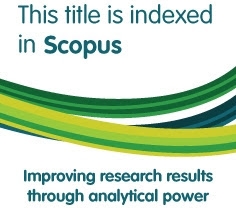Fiqh, Women and Human Rights: Competing Methodologies
Abstract
This paper attempts to, firstly, examine in some depth various writers' investigations into Islam, women and human rights. Secondly, and more importantly, it attemps provide a clear conceptual framework within which to articulate a foundation for the subject in the future. Such a re-conceptualisation is necessary to anchor future attempts at law reform within an Islamic jurisprudential heritage. By re-locating the debate within the Islamic heritage, any articulation of human rights and Muslim women will have the authority of a fiqh-inspired methodology. For muslim women engaged in the struggle for human rights, such a strategy will be more successful than either employing secular "Western" feminist discourse or by claiming the right to interpret the original Islamic sources whilst ignoring fiqh history, methodology and terminology.
Full Text:
PDFDOI: https://doi.org/10.15408/sdi.v10i1.640
Refbacks
- There are currently no refbacks.

All publication by Studia Islamika are licensed under a Creative Commons Attribution-NonCommercial 4.0 International License.
Studia Islamika, ISSN: 0215-0492, e-ISSN: 2355-6145
View My Stats
